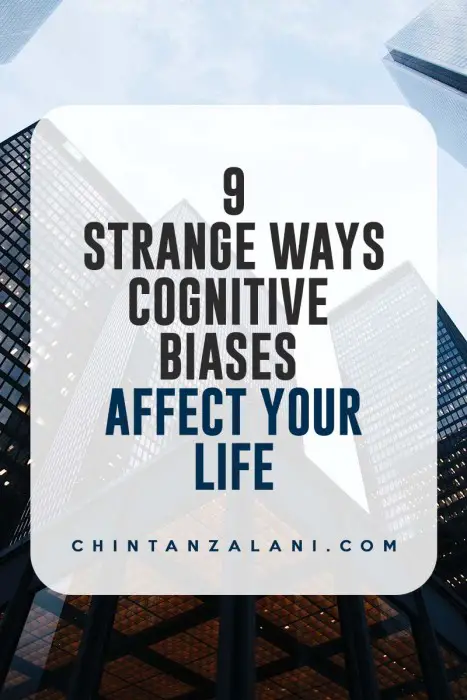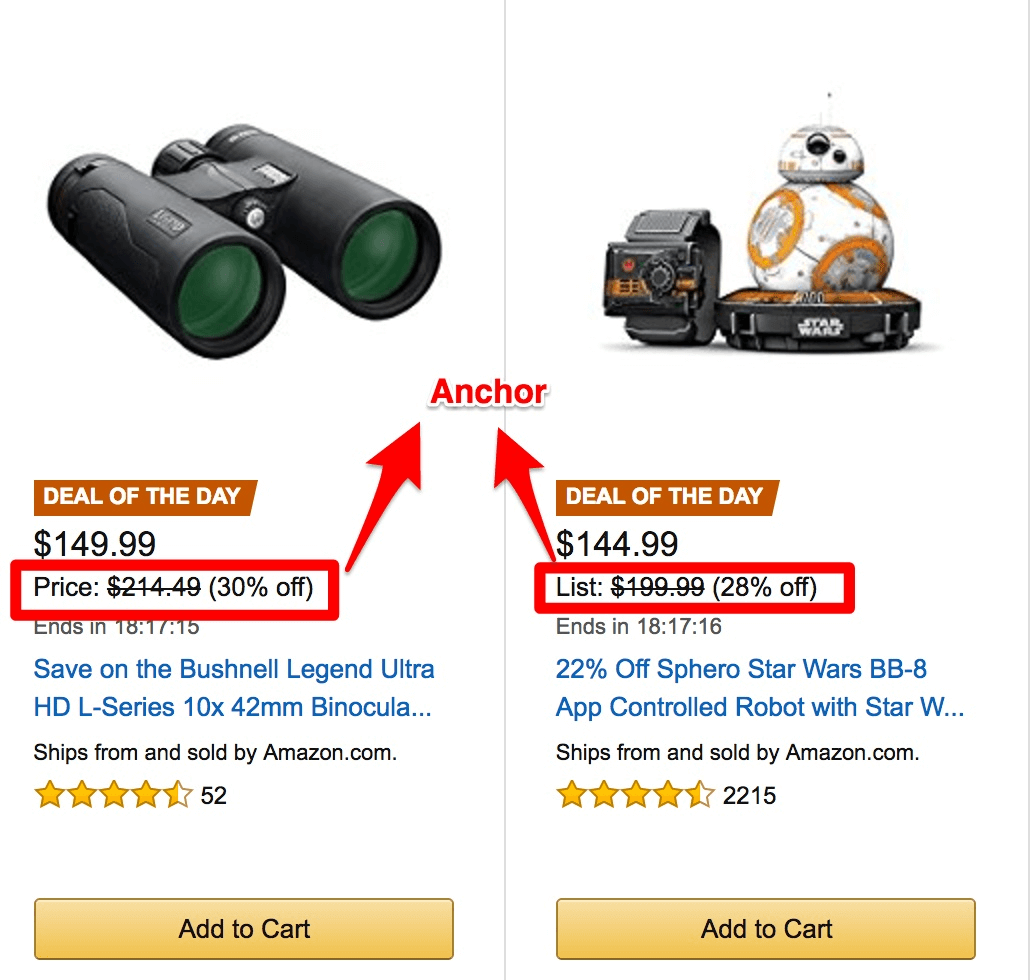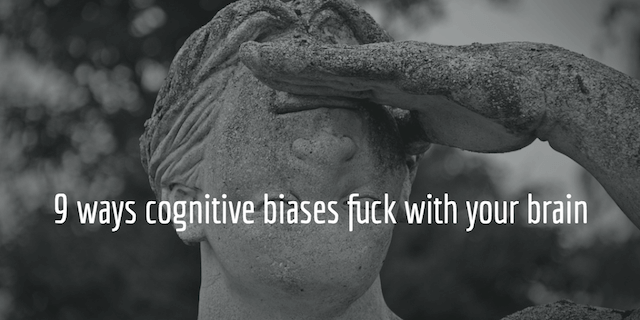“It makes perfect sense… How can you’ve such a narrow mindset and not see it?”
I’ve lost count of the number of times I’ve thought/said that statement in an argument with my friends.
Soon though, I realized that I wasn’t as rational as I hoped to be; rather, I was quite delusional.
I found out that our decisions are emotional — strongly influenced by our moods. And, counterintuitively, emotions are essential for rational decision making.
Furthermore, all of us are limited in our thinking.
The bitter truth is that our subjective perception is laden with biases nudging us to draw error-filled conclusions.
What’s surprising is that these cognitive biases are meant to safeguard our brain. In a world exploding with information, these thinking patterns offer a convenience. They allow us to save time and energy.
So how do they affect your everyday behaviour?
Well, they can lead you astray, prevent you from having intelligent conversations and act in your own best interest.
Luckily for you, I’ve prepared a list of cognitive biases.
But do you think that a huge list will stick in your memory and help you perfect your future decision-making?
I guess not. So let us do one better.
Rather than just knowing about them, we’ll use an anecdote each to enforce a few biases, and group the similar ones.
It’s easier to remember a story than copied facts from Wikipedia, yes?
In any case, the names of biases aren’t as important as the irrational behavior they induce.
So let’s explore a few of your brain’s blind spots.
Later on, I’ll share a framework to discern your biases.
Here we go!
1. The one that prevents you from having a rational discussion about politics
Loathe Trump?
But he’s at the helm. What can you do?
We witnessed a social media wave filled with hateful articles about the man who likes to “grab ‘em by the pussy.” He had numerous adverse events to weaken his candidature. His speeches were full of errors and racial undertones. He’s only a good salesman.
Now let me tell you a weird thing about the internet –
If you are a hardcore Trump hater, then you might not have seen an article in his favor.
And that’s not because everyone hates him (as you’d want).
It’s because social media algorithms feed you what you want to hear.
Facebook wants you to spend more time on its platform. It can’t afford to turn you off with a pro-Trump article.
It will only show stories that conform to your ideologies.
The graph below perfectly summarizes how Facebook leads to the formation of echo chambers.
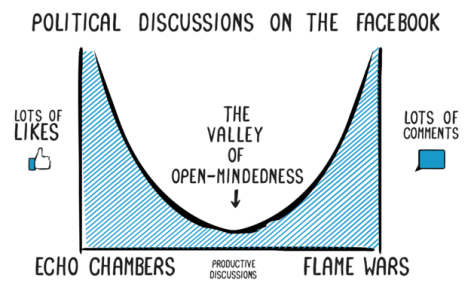
Sidenote: Yes, these social media platforms already know personal info about you. Read this article to find out how.
The bias we’re talking about is confirmation bias.
Indeed, this bias is the reason that you:
- hang out with peeps that like the same kind of shit as you,
- visit websites that conform to your thinking.
So when will this bias appear as a significant stumbling block for you?
It gets triggered during discussions around your core beliefs, life philosophies, and political affiliations (even your favorite movie).
Sensible counter facts and rational arguments won’t matter. It’s always difficult to accept the limitations, weaknesses, and loopholes around your lovelies (they are fuckin’ close to your heart).
Now let me throw in two similar biases that prevent you from making accurate judgments – The in-group bias and the conservatism bias.
Do you overestimate the abilities and values of your team? Maybe, you also deem people outside your team as less competent.
That’s in-group bias — when you favor the people who are a part of your group over people that you don’t know.
Remember how our scholars in middle ages had problems dealing with the fact that earth isn’t flat?
Okay, I get it. You’re a new-age intelligent fellow. So let me give another example.
Suppose you’re a trader working in a swanky office at Wall Street. Trading XYZ company shares made you a goddamn millionaire.
The next month’s forecast of XYZ’s earnings showed great signs – so you put more money on the table.
Then, a new report negatively contradicts the information. It’s likely that the company will lose money.
Given your attachment to XYZ, you can’t digest the latest report findings, and hold on to the earlier report.
You, my friend, are breeding conservatism bias. Put plainly:
When you under-appreciate new information (that contradicts your present world-view) and hold onto your old beliefs.
2. So you think it’s highly probable that you can get killed by a shark on the beach?
Y.E.S.
You’re right.
Look at the five vicious shark attacks that were caught on camera, and you’ll FEEL THE FEAR.
Now, vouch like the gentleman below to never go to the beach again.

And you know what?
Don’t visit Florida in September because sharks are most likely to attack you then. And be even more careful if you’ve a dick – 93% of shark attacks from 1580 to 2010 were on the *penis possessing* male species.
Now that you have a vivid image of the deathly animal…
How about we pause and reflect on the number of people that have actually died of shark attacks?
2015 was a record-breaking year with (any guesses?)
Not a few thousand or hundred.
Merely 98.
And the number of fatalities was just 6 (mind you, this was a record breaking year with more than average attack numbers).
Compare that with the number of people estimated to die in car crashes in 2016 — 40,200 (that’s more than 100 deaths a day).
Even flu is more likely to kill you than a shark.
Alright, here are 18 things that are more likely to kill you than sharks. 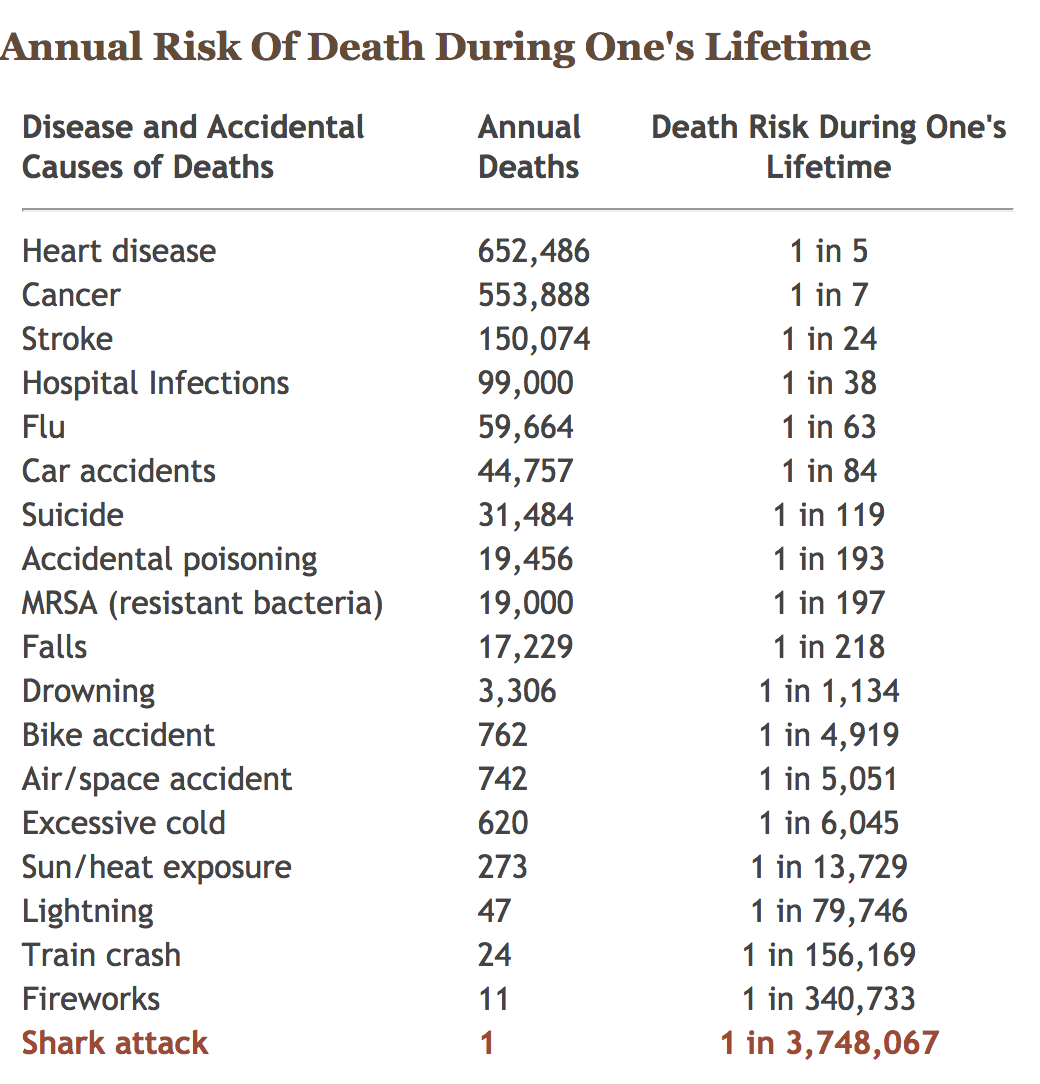
What should your priority in ‘being scared’ be? I’ll leave that to you.
Curious why we’re scared of sharks?
Their attack videos make for a vivid memory. Sharks are also regularly covered by media because such stories sell. Google returned 3 stories on sharks published in the last 48 hours (at the time of writing this article).

Let’s give a name to this error, shall we?
Availability Heuristic.
Here’s the factual summary of the bias:
- We’re easily influenced by the information that our memory can easily retrieve. Generally, we remember things that are vivid in nature.
- We’ll give more prominence to recent events. Which means that even rare events, if covered widely by the media, will make us believe that they are happening with high probability.
For example, people panicked and went berserk fearing they can get affected by the Ebola virus in 2014 — when the total confirmed cases in the USA were merely 4.
A few foolish behaviors that the bias leads us to:
- We buy lottery tickets in spite of our low probabilities of winning because of repeated exposure to the jackpot winners in promotions,
- We’re more likely to buy insurance for a natural disaster that we’ve recently experienced rather than buying it before the disaster occurs.
A similar bias that’s based on ignoring the probability of events when making decisions is the neglecting probability bias.
Do you think you’re more likely to get killed in an act of terrorism vs. accidental poisoning?
Then, refer the list of 18 things more likely to kill you than sharks again and reflect on your perception.
When you’re making your next critical decision: Don’t fall for what’s immediately accessible and available in your memory.
Meanwhile, I’ll get back to watching shark videos while you continue reading about your next mental block.
Sidenote: If you don’t use Adblock, you might repeatedly see ads from Amazon and other retailers in your social media feed. Even in your Google searches. The weird part is they show you the product/service that you viewed on their site and didn’t purchase.
The ad follows you around the internet.
Here’s one such Amazon ad that appeared On my Facebook feed after I viewed and added the product to my cart but didn’t purchase it.

What’s happening here is (without going into the technicalities):
The smart billionaires are tapping into what’s called the mere-exposure effect.
Basically, repeated exposure to a brand/product develops familiarity and a liking for it.
So, when the pair of those shoes you liked are repeatedly given impressions in your feed — will you cave in and take out your wallet?
If you click on any of those ads, do an objective evaluation whether you really need the product before pressing the ‘Buy’ button.
3. Here’s the reason why you’re expected to state your salary expectations first in job interviews
Because, for the employer, it’s the first piece of information to work with.
If you quote a $$$ range that’s below the company’s budget for your role, the proceedings continue without any drama. The interviewer isn’t going to object a thing you say — which usually happens if you don’t know the value you bring to the table.

This doesn’t mean the first person to quote a number is slated for a loss.
What if you quote a higher range of salary?
Well, research by Dr. Todd Thorsteinson confirms that even a ridiculous joke on your initial salary expectations (a million dollars?) leads to higher salary offers.
Basically, the first salary figure serves as an “anchor.” Once it’s set, humans are biased to move towards that value.
This tendency to get influenced by the first piece of information for making your subsequent decisions is called theanchoring effect.
Anchoring is difficult to avoid.
In one study, students were given two obviously wrong anchors on Mahatma Gandhi’s age (9 vs. 140).
Yet, the average guessed by students was significantly different. 12manage illustrates the study and its results in the figure below.
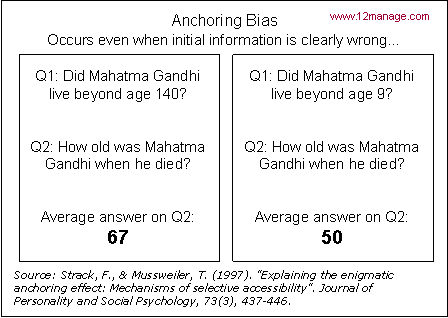
A real-life encounter you might have had with anchoring is while shopping. Remember how you’re lured with those (x) % discount? The original price settles as an anchor in your mind. And you compare it with the offered price to feel compelled to make the purchase.
Occasionally, brands even use something called as the decoy effect. If a company wants you to prefer the (higher priced) version of their product over the lower priced one, then they will create a third option — the decoy. The role of the decoy is to simply change your perception of the higher priced product.
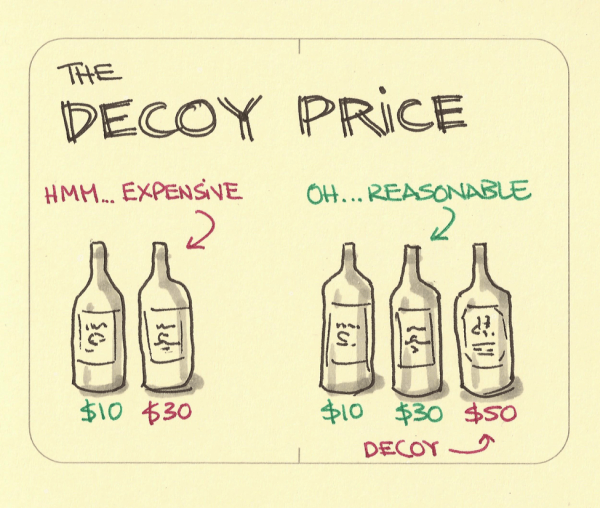 If you’re an Apple fan, then you might have been ‘decoyed’ (ah! That was corny) in the purchase of your products. Here’s an example of iPod touch price tables.
If you’re an Apple fan, then you might have been ‘decoyed’ (ah! That was corny) in the purchase of your products. Here’s an example of iPod touch price tables.
In this case, the 32GB model is being projected as the best value for money.
Hopefully you won’t fall for ‘the decoy’ when you buy coffee at Starbucks next. Ponder on the utility and your requirement from the product over trying to squeeze the most value for money spent. Because even a couple extra bucks you spend on the ‘reasonable’ choice is YOUR money.
4. No fucker, ‘you didn’t know it all along’…least, listen to Steve Jobs!
You remember how Steve Jobs was…?
Bald.
Irrelevant information aside, he was a business genius. And he gave an awe-inspiring commencement address at Stanford. Which is regularly referenced for its enlightening statement, “you can’t connect the dots looking forward.”
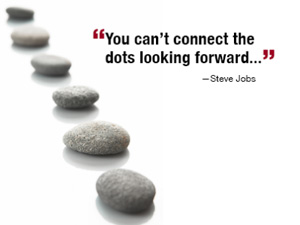
Steve’s early life was filled with random events like:
- Within 6 months, he dropped out of Reed college,
- He remained a drop-in for 18 more months and went to classes that interested him like calligraphy,
- He went on a spiritual trip to the Himalayas.
In isolation, the above events might not make sense. But Steve incorporated nuances in Macbooks from even these seemingly unproductive/irrelevant events of his life.
We’ve beautiful typography in personal computers today because Steve dropped out of college and enrolled in Calligraphy classes. You can also observe Buddhist influences of simplicity and focus in the design of Apple products (a likely result of his spiritual trip).
Steve himself mentions that it made sense to him 10 years later.
So you tell me:
How many times has an event made perfect sense….after it had occurred? While initially, you might have wrapped your head pondering ‘why me?’
You’re experiencing what’s called the hindsight bias.
Your judgement and foresight aren’t as good as you think. Don’t mull over your bad decisions because it’s now obvious why and where you went wrong. If you think that everything happened to you in the past was predictable, then you’re probably lying to yourself.
If your friend says ‘I knew it or I told you so or the like’ after occurrence of an event, then you can politely tell him to fuck off.
Once you’ve the outcome of an event, it’s easy to selectively recall information that makes for a good narrative. Research suggests that our need for closure prompts us to see the world as orderly and do activities to promote a positive view of ourselves.
The biggest problem as a result of the bias is that you don’t question events. You don’t try to find out why things didn’t proceed in the manner you expected. Hence, you fail to learn from experiences.
5. It’s difficult to stand alone and go against the flow…
That’s why most of us choose to go with the crowd. Isn’t it easier to follow someone else?
Regardless of the available evidence and validity of an idea/belief, it’s rate of adoption increases once people start accepting it.
I introduce it as the ‘Herd Instinct’ in the first lesson of my masterclass on breaking conventions. It’s also called the bandwagon effect.
The effect explains why fashion trends exist and why meetings often end up being unproductive as people gravitate towards the first idea shared in the meeting.
In politics, the bandwagon effect comes into picture when a voter gets influenced by the popular opinion for casting their vote. They vote for the ‘expected winner’ of the election as indicated by the opinion polls and the past election record of the candidates.

And it’s easy to understand why:
As a voter, if you don’t have background information on the candidates contesting an election…than the opinion polls are an easy way out as compared to following and examining the election issues.
Note: Bandwagon effect isn’t universally observable. But traces of it can be seen in the voting patterns (like the79-87 elections in Britain).
Similarly while purchasing a product from a new company, you likely look for endorsements, ratings, Facebook likes and past happy customers.
It’s highly likely that such seals of trust will persuade you to make the purchase (that you wouldn’t have otherwise)…because you know that you aren’t alone. RCA Victor released this hit Elvis collection after having sold millions of record copies. The endorsement by ‘50 million Elvis fans’ ensured that this record went platinum.
Here are a few different kinds of social proof with examples that you might have come across. As per the American Lifestyles 2015 report, 70% of consumers rely on online reviews for making a purchase.
What’s even more fascinating (disheartening?) is that once you make a wrong (overly expensive) purchase, you’ll overlook the faults and defects of the product/service to justify your choice. To avoid cognitive dissonance, you’ll justify your purchase. It’s called as post-purchase rationalizationor choice supportive bias.
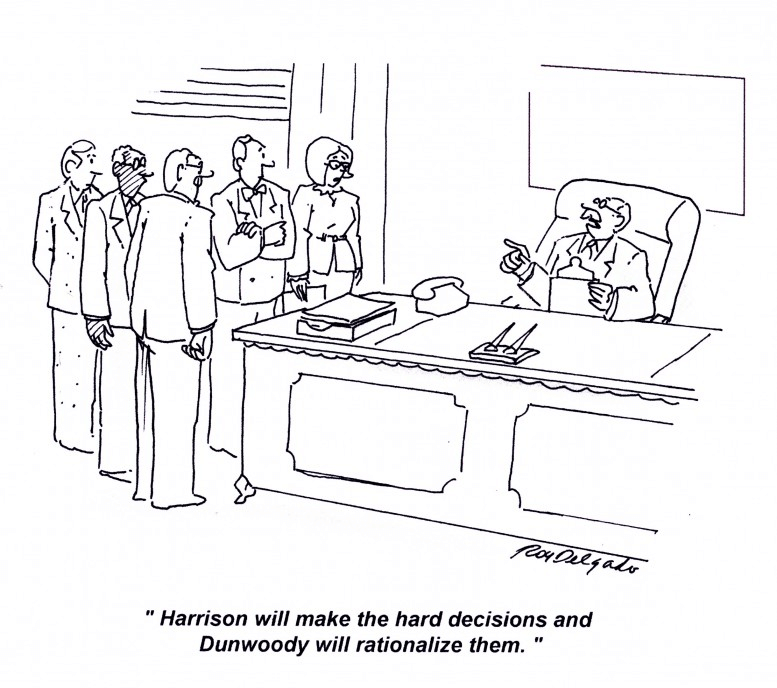
So when you make your next decision (financial, political or otherwise), beware of not getting swayed by the public opinion.
As simple as it might sound, the bandwagon effect is touted to be responsible for the 1990s dot com bubble…When investors showered money on businesses without a viable model (and just because they wanted a piece of the technology boom like their other investor friends).
A closely related bias that might lead you to believe that your thoughts, beliefs, opinions, attitudes and behaviors are ‘normal.’ Let me elaborate with an example:
Suppose you’re hanging out with 10 friends. And you’ve an option to order pizza/burger, what would you prefer?
If you like burger more than pizza, than you might assume that most friends will like to have a burger. Vice-versa.
This tendency to overestimate the number of people that agree with you is called the false consensus bias. Besides food, the bias applies to your beliefs, opinions, behaviors, values and other preferences.
If you hang out with a certain set of people (that are mostly like you), then you’ll rarely encounter people with counter-opinions. You’ll rarely run into dispute. Hence, you might overpredict the number of people that actually agree with your perspectives.
Like I mentioned previously, we all seek external validation. It’s a basic psychological need to improve our self-esteem. And it’s one of the reasons why you assume that the majority is on your side.
Coming back to Pizza vs. Burger debate:
As per 16703 votes at World Versus: 66.83% people like pizza as compared to 33.1% that like burger.
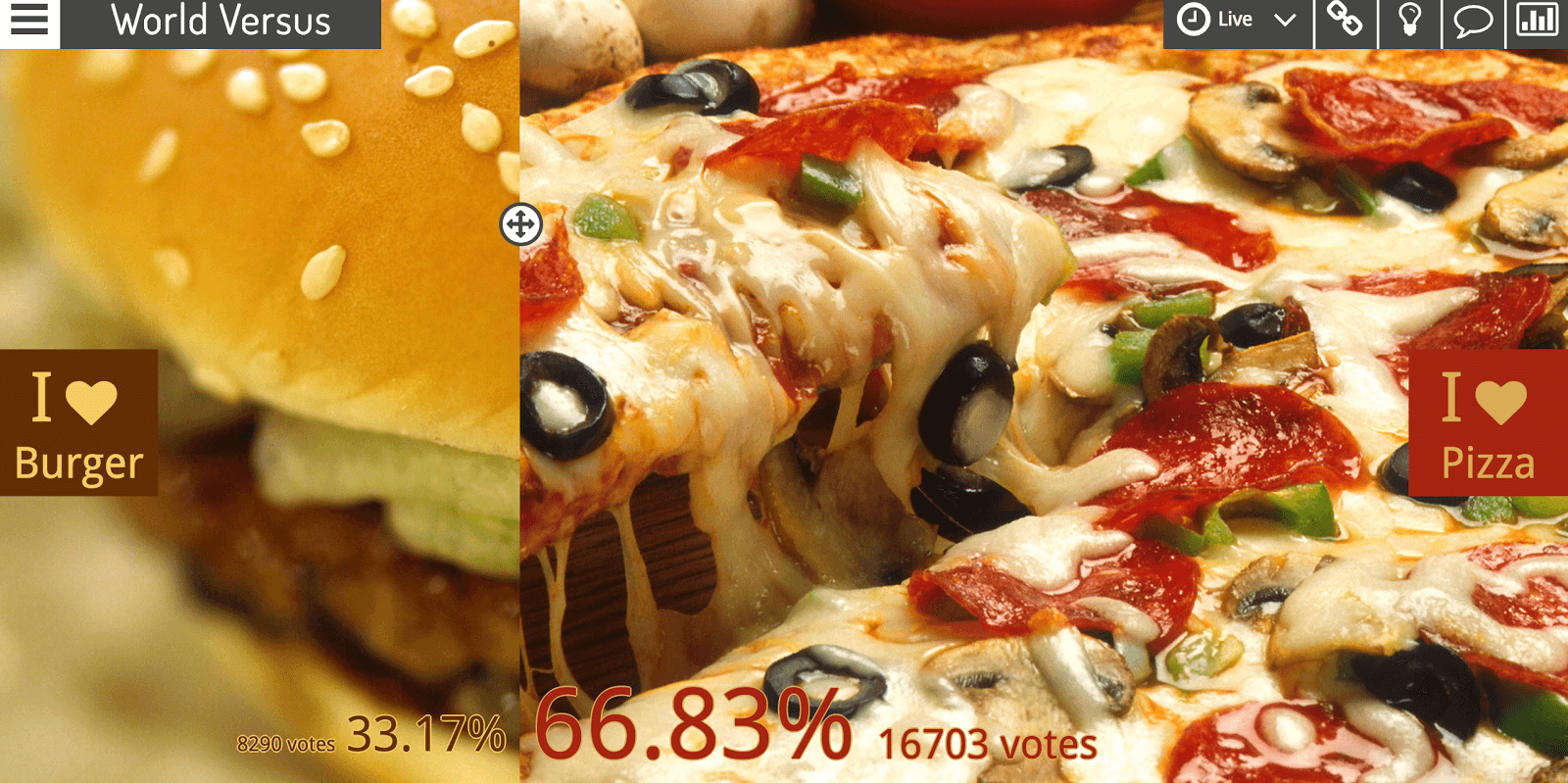
Yay, I like Pizza better too!
Once you realize that the masses aren’t on your side, how do you think you’ll behave?
You assume that the people that don’t agree with you are cunts and at fault.
So as much as you shouldn’t ‘let your inner voice drown’, you also need to have an open-mind to people different than ya!
6. The longer you’ve been together, the harder it gets to end that relationship. Sir Newton has an explanation…
The rational thing to do when you start diverging from this person is to cut ties.
But after your immense emotional investment, how can you simply let go? Indeed this might be the case with a long-time friend you no longer enjoy spending time with.
The higher your commitment to the relationship/decision, the harder it gets to misalign your future actions.Why?
The answer unexpectedly lies in Newton’s first law of motion: Objects at rest stay at rest and objects in motion stay in motion (due to inertia); unless, they are acted upon by external forces.

Sociologists call this the commitment bias. And economists have fancily termed it the ‘sunk cost fallacy’ (po-tay-to, po-tah-to).
The investment can be emotional, financial, time or the like.
Here are a few everyday examples:
-
You’ll watch a boring movie all the way and not abandon it midway. Because you’ve invested an hour of your time already. Else, maybe, you’ve spent a considerable amount of money.
-
Even if it fits poorly and doesn’t look good, you’ll continue wearing those expensive pair of shoes.
-
You’ll eat poorly cooked meal because you paid for it. If you don’t, then nobody else is going to consume the food and it’s going to go waste.
You’re afraid of accepting that you made a terrible choice. But blind optimism won’t magically cure your agony and bring back your lost time/money/other investment.
If a bad decision isn’t serving you, then break the vicious bad-decision cycle. Do the hard thing...accept defeat, learn your lessons and move on — find the next special thing that deserves your precious time, money, energy or other resource that you’re investing.
Another closely related tendency I want to introduce you to is loss aversion.
In simple words it means:
We hate losing more than we like winning. Which means that the pain of losing a $10 is much more than the joy of winning a $10 (twice as powerful psychologically as per this study).

Your decisions and behaviors are greatly influenced by this tendency to avoid those hurtful feels. And you’re likely to delay taking a decision just to avoid the possibility of losing.
Businesses are smart enough to understand that you prefer avoiding a loss over making an equivalent gain. So they frame their prices and pitch their products in this favourable context. Here’s an example (courtesy of Behaviour Design).
Doesn’t the statement “You’ll never see this deal again” have that stinky loss aversion smell?
So the next time — take that hard, painful, decisive call. Your fear of failure will scream and try to overpower you.
A technique to separate the emotion from your decision is by revisiting your goals and thinking of the reasons why you’re afraid.
7. Why you’re advised to either ‘go first’ or ‘the last’ in job interviews…
Because the interviewer is more likely to recall the first few and towards the end candidates as compared to those that were interviewed in the middle.
It’s gotta do with our memory.
Even when you’re presented with a list of items (maybe a few words) and asked to recall them in any order:
You’re more likely to recall the items at the beginning of your list and towards the end as compared to the middle.
It’s called as the serial position effect.

Now there are two cognitive biases that are responsible for this event:
-
The primacy effect
-
The recency effect
Loosely, you might have heard of them as the ‘first impression’ and ‘last impression.’ Let me explain both of them with the example of the interviewer.
For the first few people, there’s a tendency to assume them more important. Imagine yourself in the place of the interviewer that has to evaluate a long list of candidates. For the first candidate, you’re likely to feel more inspired and pay attention to the answers. You remain excited for the second one.
But with the third one, you’re already processing information shared by the first two. Maybe you then meet a boring candidate that frustrates you and adds to your mental overhead. You’re now distracted and the limitations of your memory kick in (primacy effect). Keeps piling on for the next candidates…
Until:
You’re back in a cheerful mood as you head towards the end. You reach the ‘last few’ on your interview list. These people are easier to remember because they are preserved in your working memory (recency effect).
Whether it’s the chapters in a book, the order of shirts on an eCommerce site or any other presentation of information, the above two biases hold.
The longer the list (or the information presented), the lesser is the probability that you’ll remember the middle items.
Businesses leverage both of these biases on their sales pages — by placing the biggest benefit of their product at the beginning and then repeating their core message towards the end. For instance, look at this sales page for iPhone 7. The first section of the page contains the major features of the phone to persuade you.

You’re presented with finer details on these features in the middle of the page.
At the end of the pitch, you’re presented the special benefits of buying the iPhone like ‘Free Shipping’, ‘Special financing’ and the option to buy/compare iPhone 7 models.

When you’re shopping on an eCommerce site next:
Beware that the first few products are deliberately placed there because you’re more likely to click there. And they are the merchant’s best-sellers.

But before you click the buy button, ensure that you really like the shorts and they fit your requirements. Don’t checkout just because you got primed with the items that were presented first and last (most recent).
Seasoned interviewers are aware of these biases. So they carefully make decisions and choose the right candidate for the job and don’t get easily swayed by the order of appearance of interviewees. Still it doesn’t hurt to try your luck and be the first/last, aye?
8. How intensely do you emote when you recall a sad event from your past?
Method actors are trained to recall their real life events bit-by-bit for triggering emotions and ‘regenerating feelings’ that are related to the scene they are going to enact. This helps them get into the character of the scene, emote honestly and bring depth in their performance.
So how is that relevant to a normal person like you?
Because occasionally, even you might go down the memory lane organically and trigger emotions. Like, when you stumbled upon that album with photos from your lame childhood birthday party.
What kind of feelings did that elicit?
It might have brought a smile on your face and made you all nostalgic. Overall, I am guessing it left a positive emotion.
I don’t want you to feel sad. But rather meta-think and compare the above memory with recalling an instance when you fucked up. Like, when you failed and were thrown out of school, delivered a disastrous presentation or cheated on your boyfriend/girlfriend.
Needless to say it will elicit sorrow, disappointment, anger, hate or a similar negative emotions. And we generally try to avoid such complex emotions.
But what do you think of the intensity of emotions in the first (positive) vs. second (negative) case?
Psychological research points out that the emotional response is stronger for positive emotions as compared with negative emotions. Further, the affect associated with negative fade faster than positive memories.
And if you think of it, healing emotionally from negative events is essential to maintain a healthy self-image and develop your psychological resilience. The phenomenon is called the fading affect bias (FAB).
Another interesting aspect of the bias is that the events that were negative at occurrence could trigger positive effect on recall. They might even become comical. There’s lesser probability that a positive event’s memory will trigger negative feelings.
Here’s why negative events turn funny:
-
It’s helps in maintaining sanity and a positive self-image,
-
We use humor as a coping mechanism.
An explanation for the FAB lies in the constructive nature of our memories. Let me explain:
Everytime we recall an event, it’s a distorted version of what had actually transpired – because we can only remember so much. So each recollection of the event is inaccurate and hence the emotion that’s evoked on recall is also altered every time.
Note: In few people, it’s possible that the recalling of events will restore the feeling to the same extent. And in fewer, recalling events can lead to increase in the intensity of emotions than the first time.
Want a real-life example of the fading affect bias?
The intense pain that a mother has to go through during labor. As soon as the child takes birth, the mother forgets the pain. The overall experience is clubbed as absolutely amazing. Second-time mothers even say that they don’t remember the intense discomfort they faced during the first birth.
The experience needn’t not be life affirming for every mother.
But generally, you can consider that your memory is on your side and helps you keep your life pleasant. Just don’t get deceived by your present day (good) feeling of a past negative event; you must have felt much more negative at that time.
9. Want to become a fuckin’ billionaire? Then, drop out of college and start a technology company, yo!
Since, it worked that way for Zucks, Billy and a host of other genius tech entrepreneurs.
Don’t you feel that this generalisation is more fucking ridiculous than those stereotypical light bulb jokes?

Remember in my article on correlations, I told you the six possible relationships between two variables. So it might well be possible that billionaires (that are in the limelight) just happen to be dropouts (because college education was pussy stuff for their smartness). It might even be sheer coincidence.
You can’t simply justify the order of events in hindsight and make generalizations. When you ignore the failures of a certain event and solely concentrate on the winners, then you’re falling for what’s called the survivorship bias.
A couple of reasons why the failure stories are ignored:
1. They lack visibility because it makes for a bad media story. Example: College dropouts that are unemployed and struggling in their lives will rarely be highlighted.
Fun Fact: When the results of a scientific study are positive (vs. no result or negative), then they are more likely to get approved and published in journals. So evenresearch findings need to be taken with a grain of salt.
2. Grounding in reality is hard. The current American culture promotes hard work, individualism and optimism as virtues. Just look at the below 2014 research and see how the US compares with other countries.

As a result of the optimism, Americans believe that the poor are more likely to get richer relative to the actual mobility in the US. They believe that the classic “rags to riches” stories are repeatable only if poor people ‘do enough.’ Hence they are less in favor of large federal anti-poverty programs as compared with citizens Europe.
The survivorship bias is what often leads people to rashly start up in a garage with a bunch of friends. And believe they are going to disrupt the industry and change the fucking world.
It’s also the reason that overwhelming majority of strugglers that fail to make a mark in highly competitive careers in arts and sports are ignored. It’s not as simple as putting in the hard work and building your skills. There’s factors like genes and luck.
Am I suggesting you to be pessimistic and stop dreaming of a fucking fantastic billionaire lifestyle (or whatever floats your boat)?
Nope.
Picking up a challenging goal is courageous and commendable. Sure quit your fucking job; startup. Take those acting/guitar lessons. Give your best shot to become an athlete.
But beware that available literature will be a glorified mess considering only the rare survivors. Past events need not always affect future outcomes (called as gambler’s fallacy). Articles evaluating historical successes doesn’t take the ever-evolving dynamics of the real world in account.
So make the leap for the right reasons, be prepared for the trade-offs/adjustments and take lessons from the failures as much as from the successes. While Elon Musk might be working 100 hours a week, you need to find out what works for you.
If you like to see the survivorship bias in business books, than economist Gary Smith breaks down it for you in two best-selling books here.
Feel your judgements are devoid of biases? Oh you lil’ fuckin’ angel…
If you look around, you’ll most likely find faults and biases in decisions made by people around you. But you aren’t immune either; don’t get deceived by cuteness of your mind.
85% of Americans (in a sample of 600) believed that they are less biased than average. It’s called as the blind spot bias.
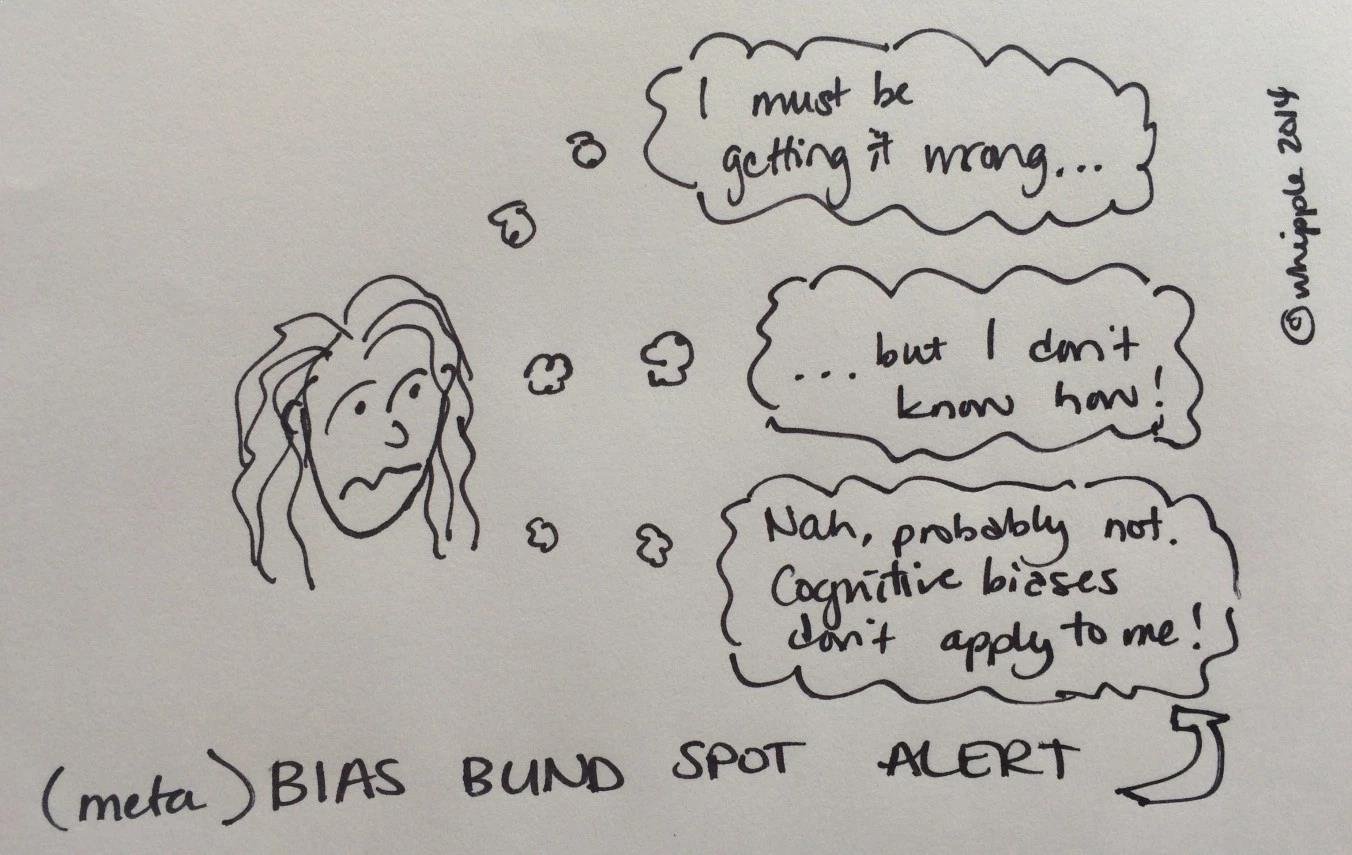
And so the adage goes: You judge yourself on the basis of your intentions, but others on the basis of their actions.
If you analyze the last few critical decisions you made, you might find a pattern. The reason it’s difficult to find your biases is because they are unconscious. If you generally tend to ignore advice from other people, then you’re probably high in the bias blind spot.
I personally tend to fall for the survivorship bias repeatedly in my decisions. Success stories give me such huge shots of adrenalin that I can’t help but get started on a new project their way.
In the past, I fell for the false consensus bias and confirmation bias numerous times. I used to think that everybody likes the same career/music/movies as me and have the same expectations from life as me (in general).
Then, I entered the real world.
If you feel exhausted and have lost confidence because of the possibilities of how your brain tricks you, then:
-
The first step to tackle your biases is acknowledging that they are there — they make you human; for god’s sake don’t feel embarrassed about it.
-
Next, don’t fall for what you intend to do; rather observe your actions like any third-person would.
-
I would also suggest taking feedback from your closest peeps (friends/family) on your decision-making. I also like Shane’s idea (from the Farnam Street blog) of keeping a decision journal.
The above steps won’t magically get rid of your biases. But it will help you understand yourself better and hopefully improve your future decisions.
It’s okay to have a healthy dose of skepticism but that doesn’t mean you need to doubt your abilities.
